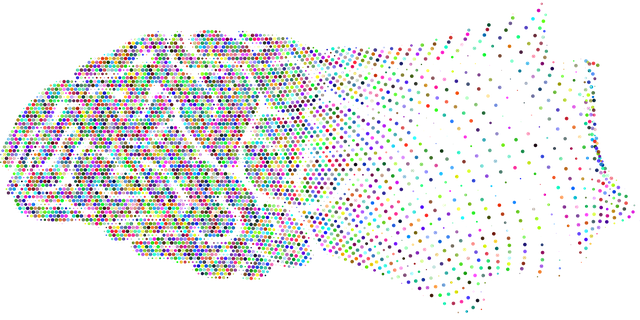Trauma can lead to severe mental and physical health issues, emphasizing the need for comprehensive care like that offered by Wheat Ridge Pain Management Therapy. They provide holistic trauma support, focusing on mood management, resilience-building, and self-awareness through exercises and journaling. Their nuanced approach, integrating cognitive behavioral therapy and mindfulness techniques, addresses both physical pain and psychological needs. By fostering open dialogue and cultural sensitivity, they create a supportive environment for long-term emotional well-being, in line with national Mental Health Policy guidelines. Community Resources and Outreach expand trauma support services, engaging diverse communities through workshops, support groups, and mental health policy advocacy to reduce stigma and encourage assistance-seeking.
Trauma, an invisible wound, affects millions globally. Understanding its profound impact on mental and physical health is crucial. This article delves into navigating trauma support services, focusing on Wheat Ridge Pain Management Therapy as a pioneering approach. We explore effective strategies, from identifying specialized services to creating tailored care plans. Community resources and outreach play a pivotal role in recovery. By unraveling these aspects, we aim to empower individuals seeking healing, emphasizing the transformative power of comprehensive care.
- Understanding Trauma and its Impact
- The Role of Wheat Ridge Pain Management Therapy
- Identifying Effective Support Services
- Creating a Comprehensive Care Plan
- Community Resources and Outreach
Understanding Trauma and its Impact

Trauma is a profound and complex experience that can leave lasting effects on an individual’s mental and physical well-being. It refers to a deeply distressing event or series of events that overload one’s ability to cope, often leading to intense emotions like fear, helplessness, and horror. Such experiences can include accidents, violence, natural disasters, or prolonged exposure to distressing situations. Understanding trauma is the first step in providing effective support, especially through services like Wheat Ridge Pain Management Therapy.
The impact of trauma extends beyond the initial event. It can manifest as post-traumatic stress disorder (PTSD), anxiety, depression, and other mental health concerns. For instance, a risk assessment for mental health professionals is crucial to identify individuals at risk of burnout, which is common in fields like therapy due to high emotional demands. Effective trauma support involves not only addressing the symptoms but also empowering individuals with tools for mood management and fostering resilience. By integrating these strategies, therapists can create a supportive environment that encourages healing, prevents burnout, and enhances overall well-being.
The Role of Wheat Ridge Pain Management Therapy

Wheat Ridge Pain Management Therapy offers specialized support for individuals dealing with trauma and its lasting effects. Through a holistic approach, therapists help clients develop coping mechanisms to manage pain and enhance emotional resilience. The therapy focuses on teaching self-awareness exercises tailored to each individual’s unique experience, empowering them to regulate their emotions effectively.
By incorporating mental wellness journaling exercises into the treatment plan, clients gain valuable insight into their thoughts and feelings. This guidance facilitates a deeper understanding of trauma responses and promotes personal growth. As a result, individuals emerge with improved self-management skills, fostering better mental wellness and overall well-being.
Identifying Effective Support Services

Identifying effective support services is a nuanced process that requires understanding the unique needs of individuals dealing with trauma. At Wheat Ridge Pain Management Therapy, we believe in a holistic approach that addresses both the physical and psychological aspects of healing. This means going beyond traditional therapy sessions to incorporate strategies like mood management and confidence-boosting techniques, which have been proven effective in fostering resilience and promoting emotional well-being.
Our experts work closely with healthcare providers to develop burnout prevention strategies tailored to their specific challenges. By integrating these practices into the support system, we aim to create a supportive environment that not only helps trauma survivors navigate their immediate issues but also equips them with lifelong tools for coping and growth. This comprehensive approach ensures that individuals receive the care they need to thrive, both in the short term and well into the future.
Creating a Comprehensive Care Plan

In developing a comprehensive care plan for trauma support services, it’s essential to integrate various specialized approaches that cater to the multifaceted needs of individuals dealing with traumatic experiences. Wheat Ridge Pain Management Therapy emphasizes the significance of a holistic approach, addressing not only physical pain but also mental health aspects. This involves incorporating evidence-based practices such as cognitive behavioral therapy, mindfulness techniques, and group support sessions tailored to cultural sensitivities. By fostering an environment that encourages open dialogue and self-awareness exercises, healthcare providers can facilitate healing processes that are both effective and culturally competent.
A crucial component of this plan is the alignment with national Mental Health Policy Analysis and Advocacy guidelines, ensuring access to quality care for diverse communities. Cultural Sensitivity in Mental Healthcare Practice plays a pivotal role in fostering trust and engagement, as it respects individual backgrounds and experiences. Through tailored interventions, Self-Awareness Exercises promote personal growth and resilience while addressing past traumas, ultimately enhancing the effectiveness of the care provided.
Community Resources and Outreach

Community Resources and Outreach play a pivotal role in extending trauma support services, especially in areas like Wheat Ridge Pain Management Therapy where access to specialized care is crucial. Local initiatives focus on connecting individuals with mental health resources tailored to their unique needs. These efforts include partnerships with community centers, schools, and religious organizations to host informational sessions, workshops, and support groups that promote Mental Health Education Programs Design. By engaging directly with the community, these programs aim to destigmatize trauma discussions and encourage individuals to seek the assistance they require.
Additionally, community outreach extends the reach of services beyond traditional therapy settings. Through mental health policy analysis and advocacy, local organizations lobby for policies that enhance access to affordable care, ensuring that everyone has an opportunity to heal from trauma. Integrating practices like Mindfulness Meditation into these programs empowers individuals to take control of their mental well-being, fostering a sense of resilience and community support.
Trauma support services are vital for fostering healing and recovery. By understanding trauma’s profound impact, we can effectively leverage resources like Wheat Ridge Pain Management Therapy to create comprehensive care plans. Identifying suitable support services and connecting individuals with community resources is key to navigating this journey. With dedicated outreach and an integrated approach, we can ensure those in need access the best possible care, ultimately revolutionizing their path to healing.












